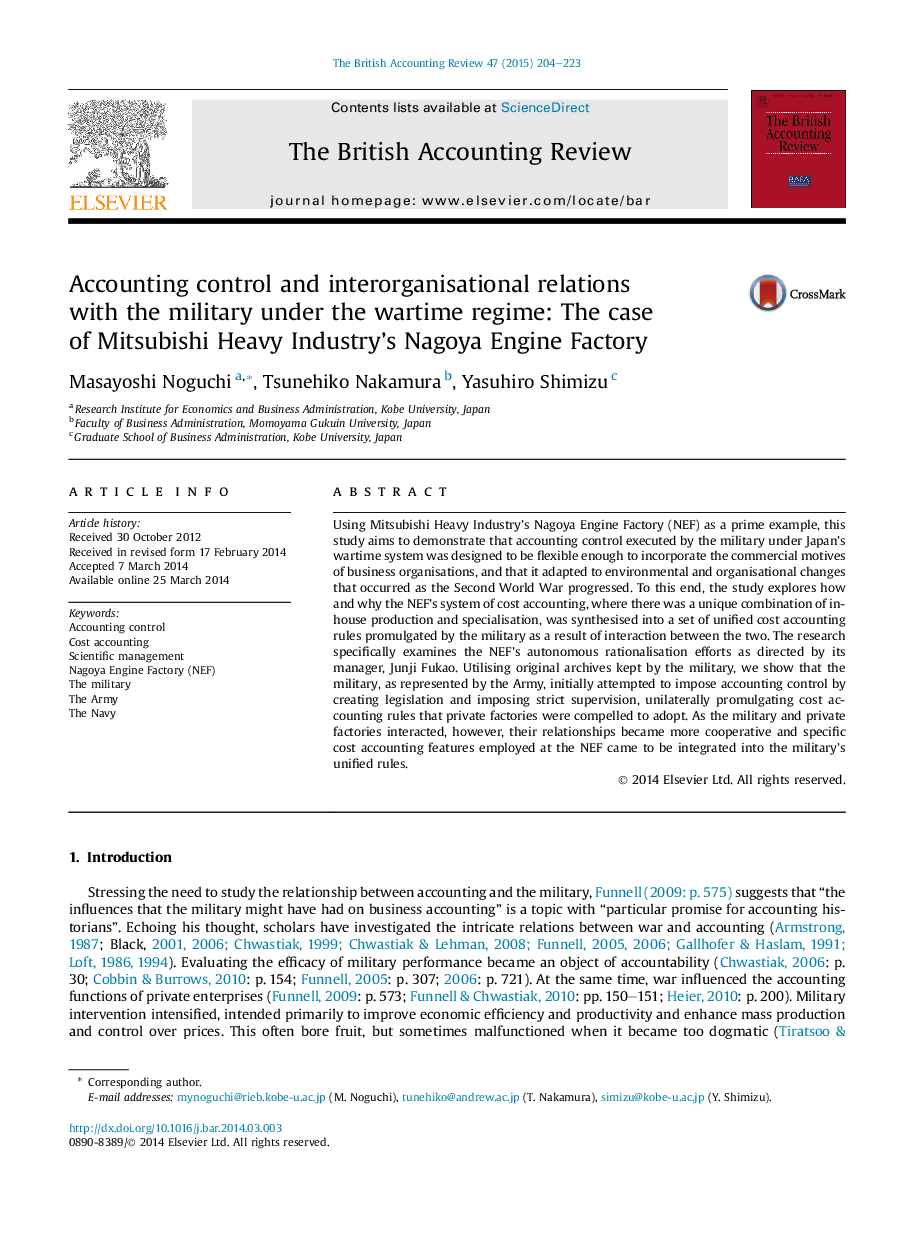| Article ID | Journal | Published Year | Pages | File Type |
|---|---|---|---|---|
| 1004015 | The British Accounting Review | 2015 | 20 Pages |
Using Mitsubishi Heavy Industry's Nagoya Engine Factory (NEF) as a prime example, this study aims to demonstrate that accounting control executed by the military under Japan's wartime system was designed to be flexible enough to incorporate the commercial motives of business organisations, and that it adapted to environmental and organisational changes that occurred as the Second World War progressed. To this end, the study explores how and why the NEF's system of cost accounting, where there was a unique combination of in-house production and specialisation, was synthesised into a set of unified cost accounting rules promulgated by the military as a result of interaction between the two. The research specifically examines the NEF's autonomous rationalisation efforts as directed by its manager, Junji Fukao. Utilising original archives kept by the military, we show that the military, as represented by the Army, initially attempted to impose accounting control by creating legislation and imposing strict supervision, unilaterally promulgating cost accounting rules that private factories were compelled to adopt. As the military and private factories interacted, however, their relationships became more cooperative and specific cost accounting features employed at the NEF came to be integrated into the military's unified rules.
